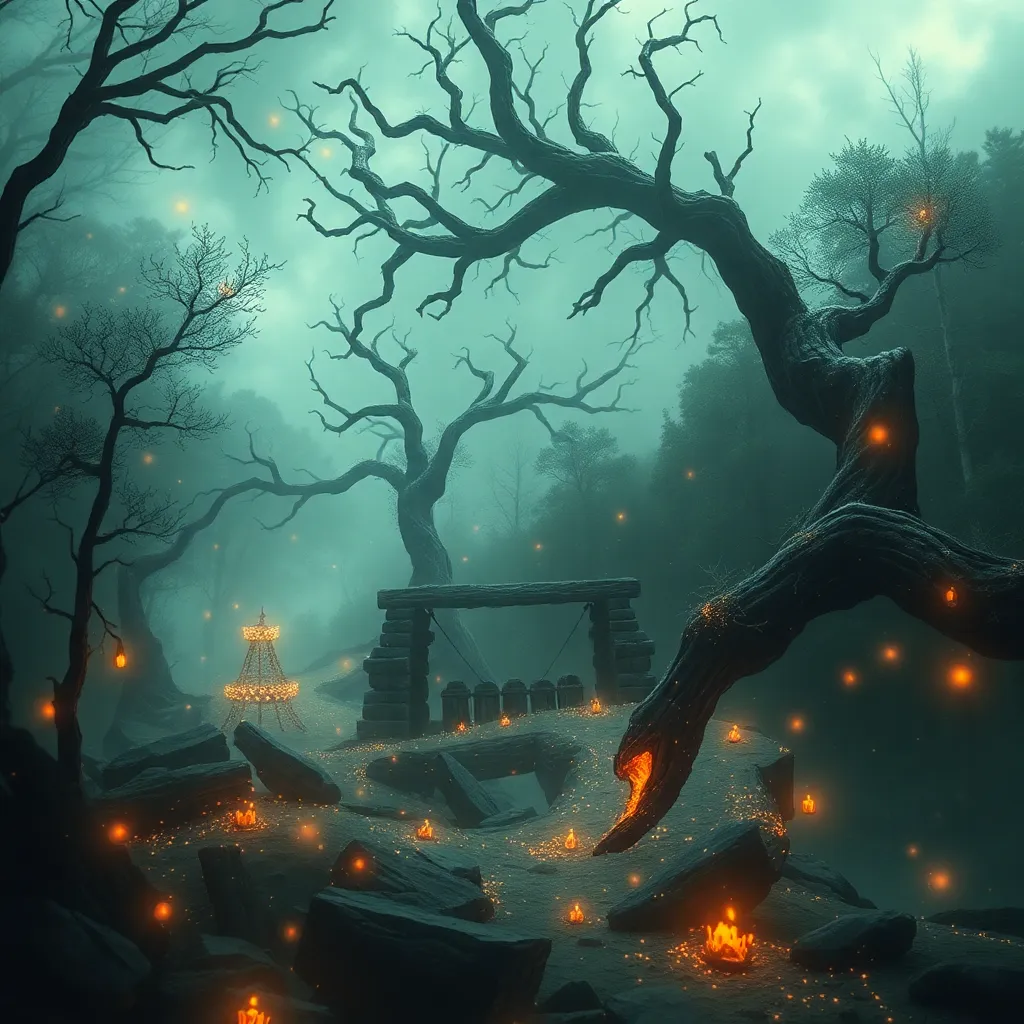1. The Role of Rituals in African Mythology
Rituals hold immense significance in African mythology, serving as fundamental elements that connect various aspects of life and the universe. They are an integral part of the African worldview, permeating religious beliefs, social practices, and cultural traditions. Through rituals, individuals and communities engage with the sacred realm, communicate with ancestors, and navigate life's transitions and challenges.
2. The Power of Rituals: Connecting Humans and the Divine
Rituals are believed to possess a transformative power that transcends the physical world. They create a bridge between the human realm and the divine, allowing individuals to interact with gods, spirits, and ancestors. Through the enactment of specific actions, words, and symbols, rituals facilitate communication and establish a sense of communion between the visible and invisible worlds.
3. Rituals as a Means of Communication with Ancestors
Ancestral veneration is a cornerstone of African mythology, and rituals serve as a primary channel through which individuals connect with their departed ancestors. Rituals such as libations, offerings, and prayers are performed to honor and appease ancestors, seeking their guidance, protection, and intercession. These rituals strengthen familial bonds and maintain the continuity of cultural heritage.
4. The Importance of Rituals in Rites of Passage
Rites of passage are significant rituals that mark major transitions in an individual's life, such as birth, puberty, marriage, and death. These rituals facilitate the transition from one social status or life stage to another, providing guidance, support, and communal recognition. By undergoing specific rituals, individuals are symbolically cleansed, transformed, and integrated into different societal roles.
5. Rituals for Healing and Protection
Rituals play a vital role in addressing physical, emotional, and spiritual ailments in African mythology. Healing rituals are believed to harness the power of the sacred realm to restore health and well-being. They involve the use of traditional medicines, incantations, and symbolic gestures to purify and revitalize the body and spirit. Similarly, protective rituals are performed to ward off evil spirits, prevent harm, and ensure the safety and prosperity of individuals and communities.
6. Rituals in Honor of Ancestors and Deities
Rituals are central to the veneration of ancestors and deities in African mythology. Ceremonies, such as festivals, dances, and sacrifices, are held to honor and appease divine beings. These rituals express gratitude, seek blessings, and maintain harmonious relationships with the supernatural realm. By engaging in these rituals, individuals and communities strengthen their spiritual connections and affirm their cultural beliefs.
7. The Preservation of Cultural Identity through Rituals
Rituals play a critical role in preserving and transmitting cultural identity in African societies. They serve as repositories of knowledge, values, and traditions that are passed down from generation to generation. Through the enactment of rituals, cultural heritage is safeguarded and revitalized. They provide a sense of belonging, continuity, and a shared history, reinforcing the bonds that unite individuals within a community.
8. Rituals as a Form of Social Cohesion
Rituals foster a sense of community and social cohesion in African societies. By bringing people together for a common purpose, they strengthen social bonds and promote cooperation. Rituals provide opportunities for individuals to interact, share experiences, and reaffirm their shared values. They facilitate the resolution of conflicts, promote unity, and maintain social harmony.
9. The Influence of Rituals on African Art and Music
Rituals have a profound influence on the development of African art and music. Many traditional art forms, such as masks, sculptures, and textiles, are created specifically for ritual purposes. These art forms serve as visual representations of spiritual beliefs and are imbued with symbolic meanings. Similarly, music plays an integral role in rituals, providing a rhythmic and emotional backdrop that enhances the transformative experience.
10. The Significance of Rituals in Modern African Society
While the significance of rituals may have evolved over time, they continue to hold immense value in modern African societies. Rituals have adapted to changing circumstances, incorporating new elements while retaining their core essence. They provide a sense of continuity and connection to tradition in a rapidly changing world. Rituals continue to serve as a vital means of expressing cultural identity, fostering community, and navigating the challenges of modern life.
FAQs
Q: What is the purpose of rituals in African mythology?
A: Rituals play a multifaceted role in African mythology, connecting humans with the divine, facilitating communication with ancestors, marking life transitions, promoting healing and protection, honoring deities, preserving cultural identity, fostering social cohesion, influencing art and music, and providing a sense of continuity in modern society.
Q: How do rituals help individuals connect with the sacred realm?
A: Rituals create a bridge between the human and sacred realms, enabling individuals to interact with gods, spirits, and ancestors. Through specific actions, words, and symbols, rituals facilitate communication and establish a sense of communion with the divine.
Q: What is the significance of rituals in ancestral veneration?
A: Rituals are essential in honoring and connecting with ancestors in African mythology. They provide a means to seek guidance, protection, and intercession from departed ancestors, strengthening familial bonds and maintaining the continuity of cultural heritage.
Q: How do rituals contribute to social cohesion in African communities?
A: Rituals bring people together for common purposes, fostering a sense of community and social cohesion. They provide opportunities for individuals to interact, share experiences, and reinforce shared values. Rituals facilitate the resolution of conflicts, promote unity, and maintain social harmony.



